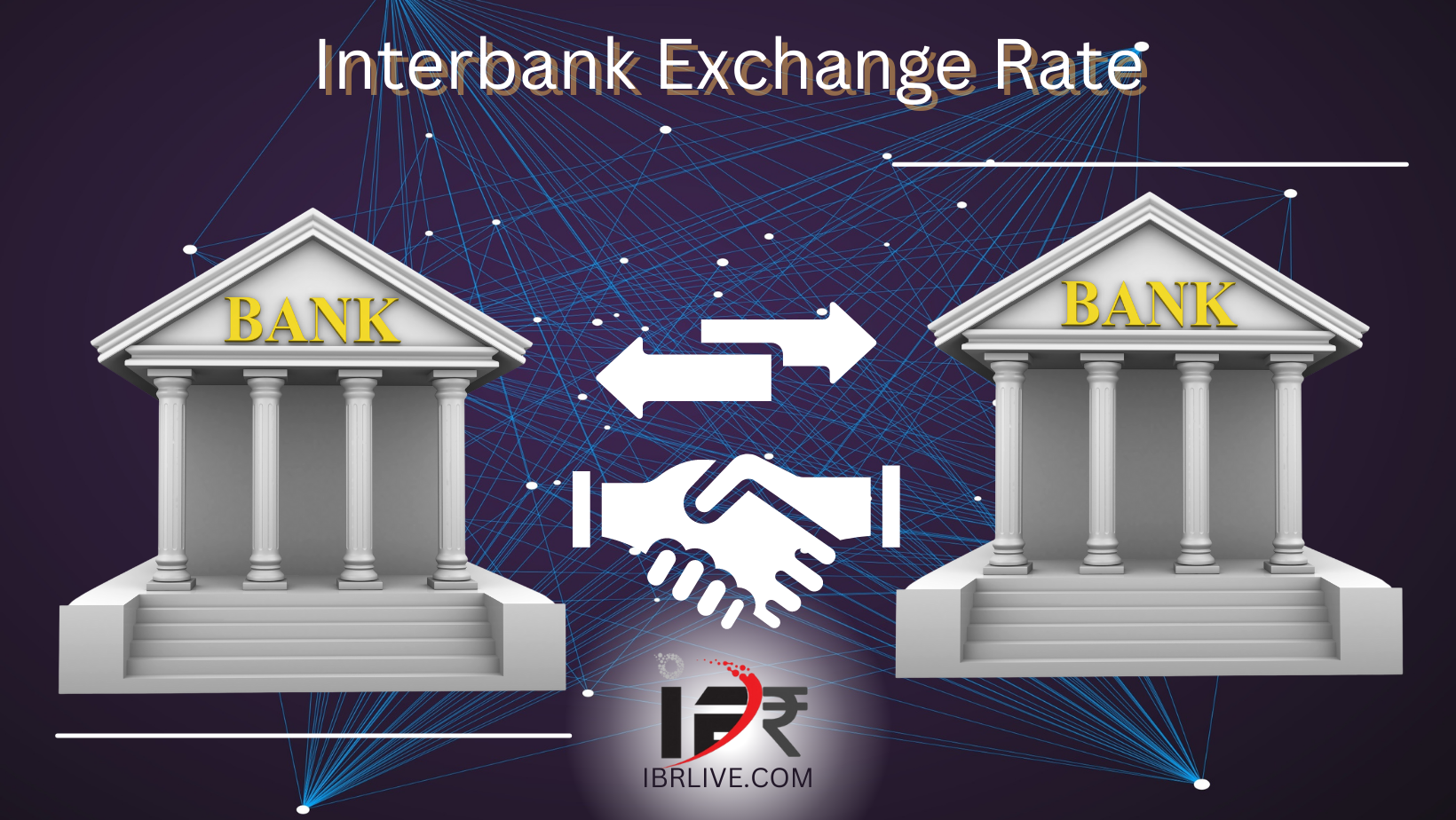Interbank exchange rates refer to the exchange rates at which banks buy and sell currencies from each other. These rates are important because they affect the value of currencies for businesses and individuals who need to exchange money across different countries. In this blog, we’ll explore what is IBR Rate, how they’re determined, where to find authentic & real-time exchange rates and why they matter.
- What are interbank exchange rates?
Interbank exchange rates are the exchange rates at which banks buy and sell currencies from each other. Interbank exchange rates are also commonly referred to as spot rates. The spot rate is the exchange rate at which a currency can be bought or sold for delivery within two business days. These rates are typically used as a benchmark for exchange rates in the wider market, as they reflect the rates at which banks with significant trading volumes can exchange currencies with each other.
The interbank rate is used by banks to settle transactions between themselves, such as when one bank needs to pay another bank in a different currency. These rates are typically quoted with a bid-ask spread, which represents the difference between the price at which banks are willing to buy and sell currencies. The bid price is the price at which a bank is willing to buy a currency, while the asking price is the price at which it’s willing to sell the currency.
- How are interbank exchange rates determined?
Interbank exchange rates are determined by supply and demand in the foreign exchange market. Banks with excess currencies will offer them for sale, while banks that need those currencies will buy them. The exchange rate at which these transactions occur is determined by the market, based on the supply and demand for each currency.
Many factors can affect the supply and demand for currencies in the foreign exchange market. These include factors such as economic data, central bank policies, political events, and natural disasters, among others. Changes in any of these factors can cause fluctuations in exchange rates.
- Where you can find authentic & real-time interbank exchange rates?
Although many sources are available online to find interbank exchange rates, not all are authentic and real-time. The best platform that displays accurate & live interbank exchange rates is https://ibrlive.com. You can find IBR rates of almost all currencies on this website, which is free of charge.
- Why do interbank exchange rates matter?
Interbank exchange rates are important because they affect the value of currencies for businesses and individuals who need to exchange money across different countries. For example, if you’re a business that needs to pay a supplier in another country, you’ll need to exchange your local currency for the currency of the country where your supplier is located. The exchange rate you receive will determine how much of your local currency you need to exchange to pay your supplier.
In addition, IBR rates can affect the profitability of businesses that operate in multiple countries. If a company earns revenue in one currency but has expenses in another currency, changes in the exchange rate can affect its profit margin.
Finally, IBR rates can also have an impact on the wider economy. For example, strengthening a country’s currency can make its exports more expensive and less competitive in foreign markets. This can lead to a reduction in exports and a negative impact on the country’s economy.
In conclusion, interbank exchange rates are an important component of the foreign exchange market. They are used by banks to settle transactions between themselves and serve as a benchmark for exchange rates in the wider market. Understanding how these rates are determined and why they matter can help businesses and individuals make better decisions when it comes to exchanging currencies.

